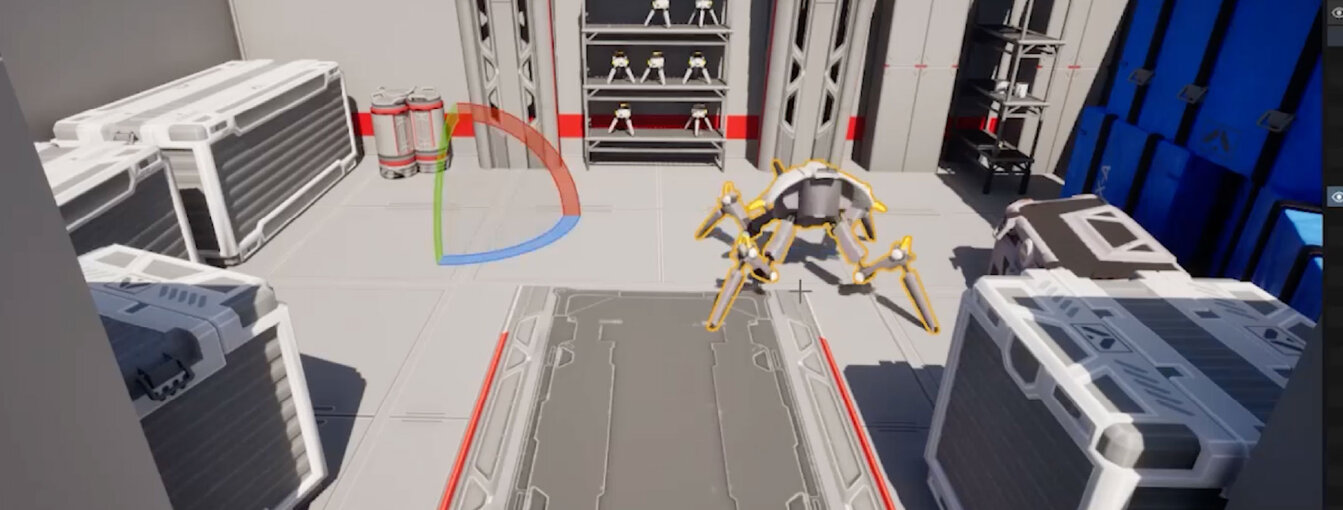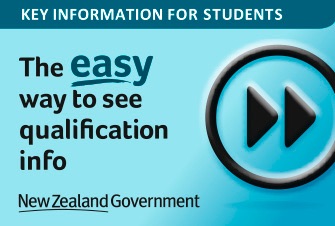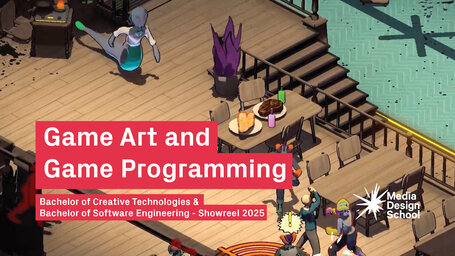What is the Graduate Diploma of Creative Technologies - Game Programming?
Breathe life into unimagined worlds.
Learn a range of programming languages from C++ to Swift, enabling you to succeed in the games industry and beyond. Our teaching style not only gives you the knowledge of tools, but the kit to work in a team, an essential but overlooked necessity. Hone your abilities in interviewing, presenting and communicating while you craft a masterpiece with your small team. Be amongst the most sought-after graduates for New Zealand’s gaming industry, forging alliances with the likes of Rocketwerkz, Pik-Pok and Outerdawn.
Course Outline
Our Graduate Diploma of Creative Technologies - Game Programming is designed to work around your existing skills, and get you to an industry level game artist in just one year.
Course Outline
This stream is aimed at students who want to transfer basic programming skills into game development and learn to work with game engines. While an ability to transfer basic programming knowledge into programming with C++ is expected, prior experience with game engines is not required.
This stream is available for February and July intakes.
| Component Name | Credits | Toggle |
|---|---|---|
|
Gameplay Programming
|
||
|
Apply mathematical concepts to gameplay programming while building functionality within practical game projects. You will also work with intermediate features of C++ and rendering frameworks to develop a deeper understanding of gameplay systems.
|
||
|
Game Engines
|
||
|
Work in modern 3D game engines such as Unity and Unreal to develop an understanding of game production, scripting, materials, lighting, and visual effects.
|
||
|
Game Design
|
||
|
Explore principles of game design through topics such as mechanics, balance, player motivation, narrative, level design and more. Through practical projects and iteration, you will apply your learning to design a game.
|
||
|
Major Project
|
||
|
Develop an independent project of your choosing utilising the skills you have learned throughout the course. Alternatively, students may undertake a major game production in a team working with other artists and programmers. Note: team production is subject to availability.
|
||
Course Outline
This stream provides an opportunity for computer science graduates or professionals working in programming roles to transfer their knowledge into game programming. Applicants are expected to have prior programming experience and should be ready to work with intermediate and advanced features of C++, and game engines.
This stream is available for February and July intakes.
| Component Name | Credits | Toggle |
|---|---|---|
|
Software Engineering for Games
|
||
|
Engage with advanced programming topics within game development such as artificial intelligence for games, networking, physics, graphics programming, and mobile development by utilising intermediate and advanced features of C++.
|
||
|
Game Engine
|
||
|
Explore the low-level design of game engines and develop plugins and tools within an existing engine.
|
||
|
Game Design
|
||
|
Explore principles of game design through topics such as mechanics, balance, player motivation, narrative, level design and more. Through practical projects and iteration, you will apply your learning to design a game.
|
||
|
Major Project
|
||
|
Develop an independent project of your choosing utilising the skills you have learned throughout the course. Alternatively, students may undertake a major game production in a team working with other artists and programmers. Note: team production is subject to availability.
|
||
Careers & Industry
The Graduate Diploma of Creative Technologies provides you with everything you need to level up your skills, and to bring a more diverse skillset to your existing career, or the tools to switch to a new one. Our graduates have gone onto have successfull careers in industry, freelance, or even growing their existing businesses.
Gameplay Programmer
Tools/Engine Programmer
AI Programmer
Course Requirements
Open to domestic and international applicants with a degree qualification, or accumulated professional / educational experience relevant to the creative technologies domain.
If you are applying for the GDCT after completing a Bachelors Degree you will need to provide:
- Your portfolio;
- Your letter of intent;
- Your transcripts from your Bachelors qualification;
- Your CV/Resume;
If you are applying on the basis of accumulated professional or educational experience, you will need to provide evidence of four years or more of accumulated professional or educational experience, including two reference letters from previous employer/s; and transcripts from any prior tertiary qualifications you have completed.
Please note, quotas may apply to some programmes. Where demand exceeds the number of available places, applicants who meet entry requirements will be admitted on a first-come-first-served basis.
As an international student, you'll need to prove you have sufficient English language skills in order to complete this course. We'll be looking for Academic IELTS overall score of 6.0 (minimum) with no band less than 5.5, or equivalent test result.
We accept a range of internationally recognised English Language proficiency test. Find out more on the NZQA website or download the NZQA list HERE.
Before you begin your study with us, you will need to have a suitable device that has the functionality to run the programmes required for your course.
Click the link below to find course-specific requirements and recommendations, along with links to more information about hardware specifications. We have prepared these recommendations to help our students equip for flexible, blended learning.











